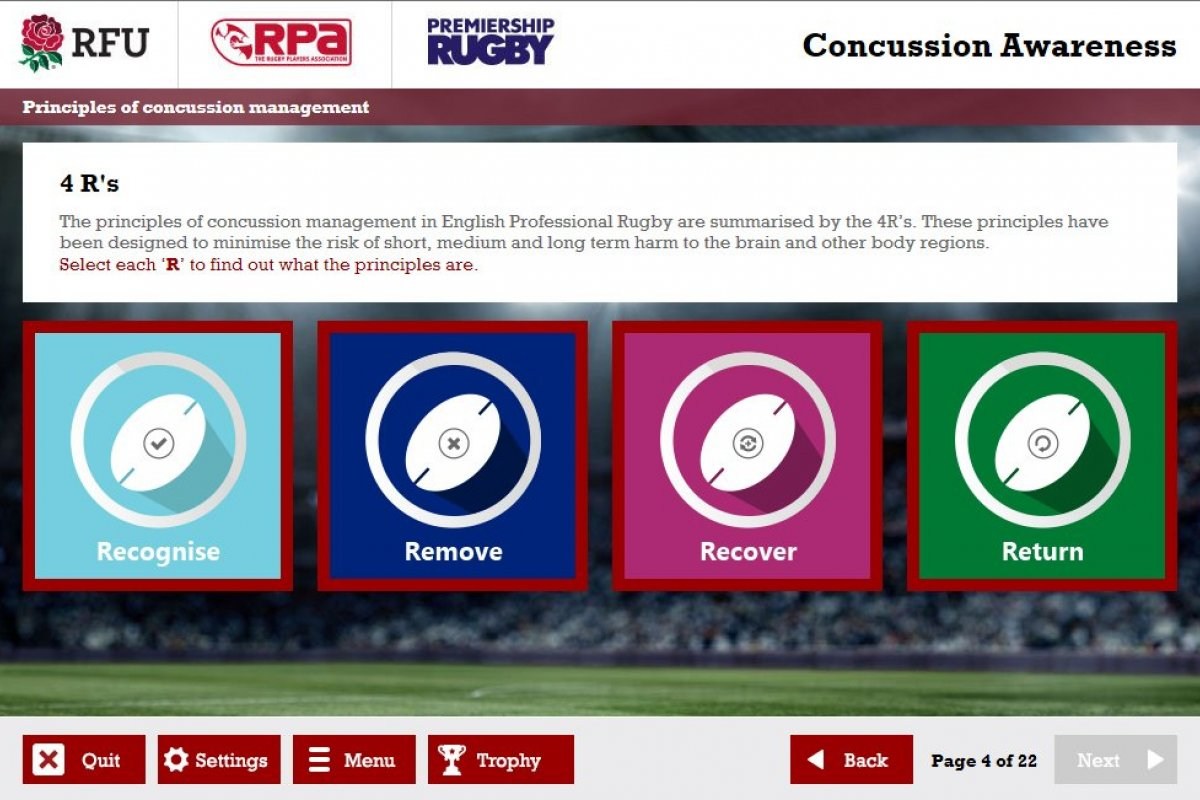VinciWorks helps rugby to tackle concussion with custom eLearning

[vc_row type=”in_container” full_screen_row_position=”middle” column_margin=”default” column_direction=”default” column_direction_tablet=”default” column_direction_phone=”default” scene_position=”center” text_color=”dark” text_align=”left” row_border_radius=”none” row_border_radius_applies=”bg” overflow=”visible” overlay_strength=”0.3″ gradient_direction=”left_to_right” shape_divider_position=”bottom” bg_image_animation=”none”][vc_column column_padding=”no-extra-padding” column_padding_tablet=”inherit” column_padding_phone=”inherit” column_padding_position=”all” column_element_spacing=”default” background_color_opacity=”1″ background_hover_color_opacity=”1″ column_shadow=”none” column_border_radius=”none” column_link_target=”_self” column_position=”default” gradient_direction=”left_to_right” overlay_strength=”0.3″ width=”1/1″ tablet_width_inherit=”default” tablet_text_alignment=”default” phone_text_alignment=”default” animation_type=”default” bg_image_animation=”none” border_type=”simple” column_border_width=”none” column_border_style=”solid”][vc_column_text]As previously announced, VinciWorks has worked with the Rugby Football Union, Premiership Rugby and Rugby Players’ Association […]
Five key risks that probably aren’t in your risk register, but should be there
The risk experts at VinciWorks have conducted multiple off-the-record conversations with various COLPs, COFAs and risk officers to discuss the risks they are examining in their firms. In addition, we researched multiple online risk resources and the SRA’s own public statements on risk and OFR. This list features five key risks that you should focus […]






